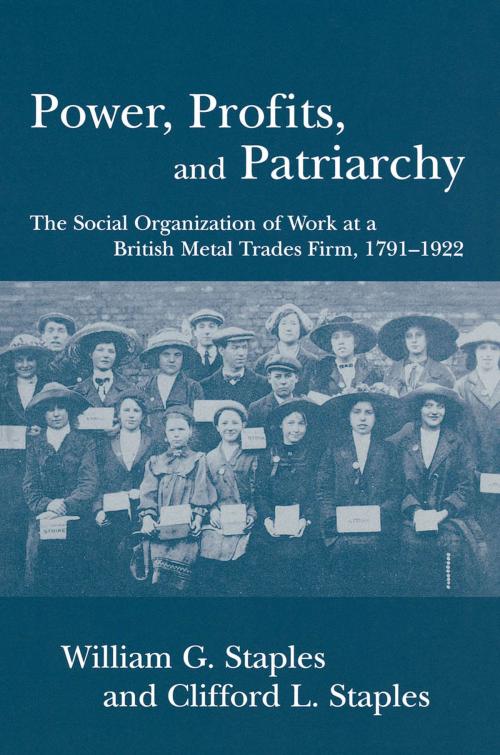Power, Profits, and Patriarchy
The Social Organization of Work at a British Metal Trades Firm, 1791-1922
Nonfiction, History| Author: | William G. Staples, Clifford L. Staples | ISBN: | 9781461613244 |
| Publisher: | Rowman & Littlefield Publishers | Publication: | August 7, 2001 |
| Imprint: | Rowman & Littlefield Publishers | Language: | English |
| Author: | William G. Staples, Clifford L. Staples |
| ISBN: | 9781461613244 |
| Publisher: | Rowman & Littlefield Publishers |
| Publication: | August 7, 2001 |
| Imprint: | Rowman & Littlefield Publishers |
| Language: | English |
Founded in 1791 and in existence for more than two hundred years, the Kenrick iron foundry of West Bromwich, England produced some of the finest cast-iron hardware ever made. William and Clifford Staples' goal in studying the Kenrick case is to examine how taken-for-granted assumptions about class, gender, and familial relations contributed to the longevity of the firm. The authors' investigation uncovers three distinct political regimes of production that they characterize as successive forms of capitalist patriarchy. Indeed, it is contended that the Kenricks were able to maintain their power and their profits, to a great extent, because they were able to use patriarchy to solve pressing organizational problems. By balancing a concern with both the materiality of production and its ideological, cultural, and political moments, this book offers new insights into the nature of production politics, patriarchy, and the historical sociology of capitalism.
Founded in 1791 and in existence for more than two hundred years, the Kenrick iron foundry of West Bromwich, England produced some of the finest cast-iron hardware ever made. William and Clifford Staples' goal in studying the Kenrick case is to examine how taken-for-granted assumptions about class, gender, and familial relations contributed to the longevity of the firm. The authors' investigation uncovers three distinct political regimes of production that they characterize as successive forms of capitalist patriarchy. Indeed, it is contended that the Kenricks were able to maintain their power and their profits, to a great extent, because they were able to use patriarchy to solve pressing organizational problems. By balancing a concern with both the materiality of production and its ideological, cultural, and political moments, this book offers new insights into the nature of production politics, patriarchy, and the historical sociology of capitalism.















